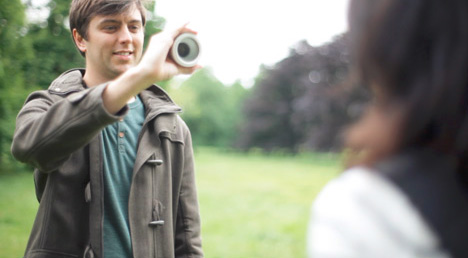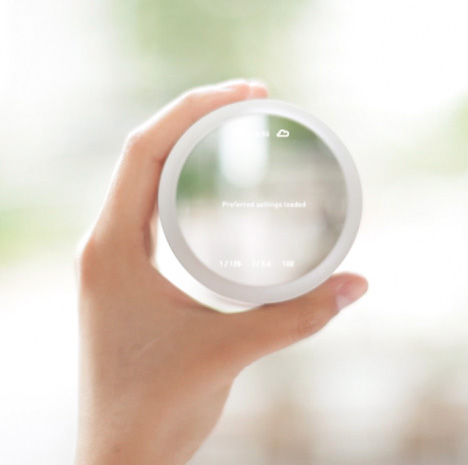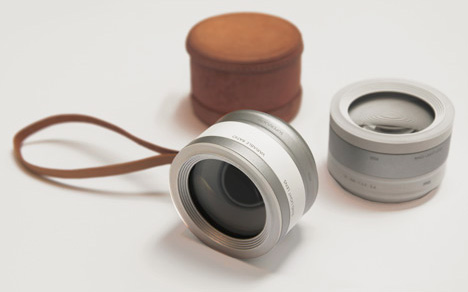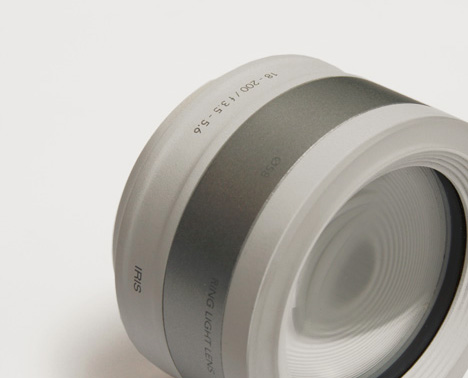Simple, intuitive and innovative for the everyday photographer, Iris promises even more to the disabled, letting anyone control capture area, zoom level, the moment of a shot and other features … all with only eye movements.
Mimi Zou is a graduate of the Royal College of Art developed this eye-tracking camera design around biometric technology. The device can recognize people on both sides of the lens by their eyes – the person taking the picture (so it can pre-load preferred settings) as well as the person being photographed.
A translucent screen inhabits the center of the circular device, allowing you to get an augmented-reality look at your subject matter, with optional overlays indicating prominent buildings or other features of the built environment you may wish to capture.
Narrow your eyelids to zoom in, then open wide to zoom back out. Focus on a spot, blink twice, and a photo is taken. If a friend is recognized in the frame, there is also an option to tag them on the spot. And all of this functionality is rolled up into what looks like a cylindrical lens without a camera.
As of right now it remains a working model, but with luck, time and funding it might become the next wave in ever-more-minimalist photographic contraptions, and particularly powerful image-taking aid for those who cannot use hands to easily hold and point a camera.



